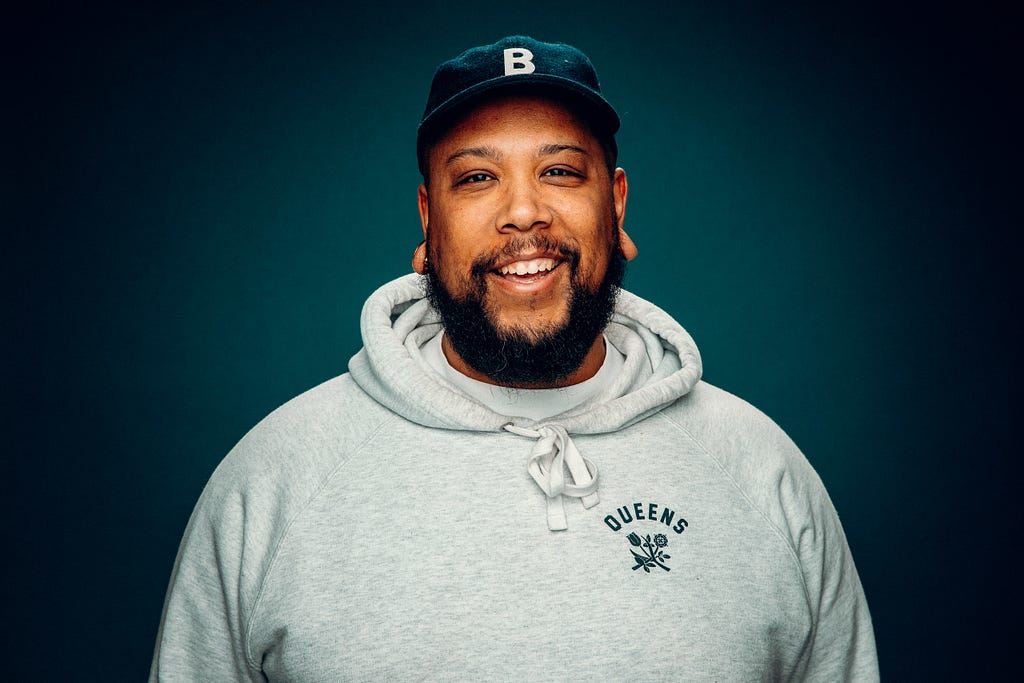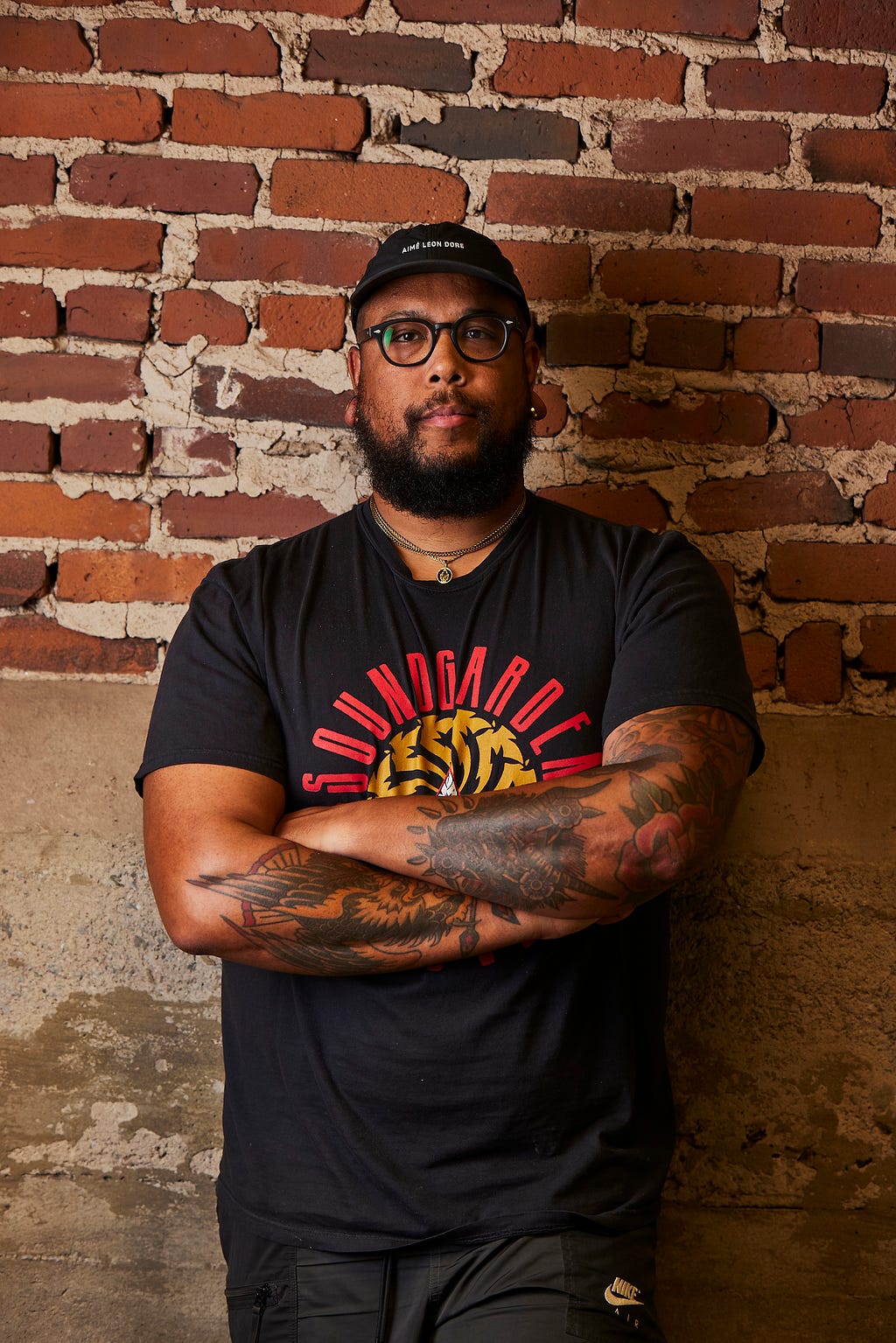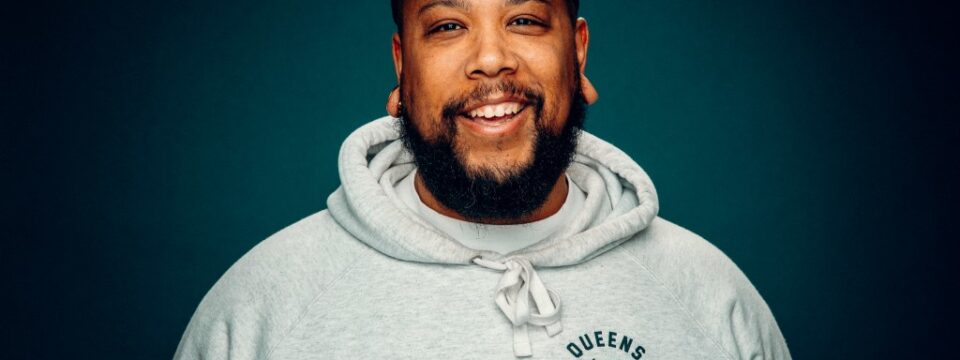Colin Dinnie of Wistia: 5 Steps We Must Take To Truly Create An Inclusive, Representative, and Equitable Society

Establish your “why.” Why do you want to engage in diversity, equity and inclusion? The answer to that question will help you anchor to a north star that maintains focus and accountability. It’s important to be mindful that if the answer is “because everyone else is” or you feel obligated through expectation, that’s an immediate non-starter for sustainable change.
As part of our series about ‘5 Steps We Must Take To Truly Create An Inclusive, Representative, and Equitable Society’ I had the pleasure to interview Colin Dinnie.
Colin Dinnie is a DE&I program manager at Wistia. He joined the company in 2018, where he previously served as Support Associate and Billing Specialist on the Customer Happiness team. He is also a co-host for the Wistia Studios podcast “A Better Workplace,” and a member of the DEI (Diversity, Equity, and Inclusion) Council taking part in designing and executing strategic initiatives to advance company efforts in that space.
Thank you so much for doing this with us! Before we dig in, our readers would like to ‘get to know you’. Can you tell us a bit about how you grew up?
So happy to take part in this! I grew up in the Greater Hartford area of Connecticut, where most of my time was split between sports and music. I played pretty much any instrument I could get my hands on, while playing football, basketball and lacrosse. I was never short on things to do! I was and still am the curious type; once I become interested in something, I want to know everything about it and immerse myself in it as much as possible.
Is there a particular book that made a significant impact on you? Can you share a story or explain why it resonated with you so much?
I’m still in the middle of this book, but “The Social Instinct” by Nichola Raihani has been particularly intriguing and relevant to me right now. It centers around how cooperation has shaped our world both through evolution and social structures, with context to both the positive and negative aspects of collaboration. Cooperation/collaboration can be wielded in a number of ways, and understanding the nuances can unlock a lot of blockers in how we approach those efforts in our interpersonal interactions.
Do you have a favorite “Life Lesson Quote”? Do you have a story about how that was relevant in your life or your work?
There is a now-defunct podcast called “With Friends Like These,” hosted by Ana Marie Cox, that “explores forgiveness and reconciliation in our polarized America.” In one of the episodes she said something that stuck with me ever since I heard it. To paraphrase, it was something along the lines of, “when someone is speaking to you, instead of thinking about what you’re going to say next, think about why what that person is saying is important to them, and form your response around that.”
Many people are familiar with the concept of intentional listening, but hearing it framed in that way helped me practice deeper empathy, and ultimately reach more productive outcomes when problem solving. It doesn’t mean conceding your position, it just means letting go of being “right” and making the conversation more collaborative than debateful.
How do you define “Leadership”? Can you explain what you mean or give an example?
Leadership to me is defined by one’s ability to maximize the efforts and outcomes of others. Most of us learn that leadership is determined by the ability to influence and get people to follow. While that’s a piece of it, I think the critical component not emphasized enough is that ability to influence being focused toward a shared goal, not a personal desire. In order to influence others to follow, they need to be able to trust you. Otherwise leadership is only in title, not practice.
In a lot of ways, I see leadership as being able to effectively show others how to be a leader themselves. I’ve been fortunate throughout my career to have many mentors who have encouraged me to trust my instincts, sharpen my skills, and flex my strengths.
In my work, I often talk about how to release and relieve stress. As a busy leader, what do you do to prepare your mind and body before a stressful or high stakes meeting, talk, or decision? Can you share a story or some examples?
I think it’s important to allow yourself space and grace. Space is the time either before and/or after an interaction where you engage in something that brings you joy. A book, some YouTube time, music, anything really. This can help calm your nerves and you can enter the discussion from a more positive position.
Grace is the permission you give yourself to feel everything you want to feel. In professional contexts, we’re conditioned to suppress the humanity of our being, and those emotions can compound into negative outcomes for ourselves and others. It’s okay to feel anxious, scared, or angry. Allow yourself to feel all of it, and then focus on a pathway forward.

Ok, thank you for all that. Now let’s move to the main focus of our interview. In the summer of 2020, the United States faced a very important self-reckoning about race, diversity, equality and inclusion. This is of course a huge topic. But briefly, can you share your view on what made the events of 2020 different from racial reckonings in the past?
I think the raw nature of the circumstances around George Floyd, Ahmaud Arbery, and Breonna Taylor changed everything. Watching a man lose his life over the course of 9 minutes calling out for his mother, a man being hunted and pursued while running, and a woman killed in her own home elicits a significant emotional response, and a country that has spent four centuries dodging that reckoning ran out of places to turn.
For some, these were shocking developments that either forced or motivated a desire for change. For the Black community, this was Black trauma on display in a very public and inescapable way. It was not the first time we had to process it, but it was the first time we had to process it without much room for our own wellbeing. It was the perfect storm for a tipping point.
Throughout American history, we’ve had several tipping points, and they’ve determined the socio-economic climate for decades afterward. We’re currently living through what is still shaping into a historically significant time, which offers us the opportunity to still do our part to shape outcomes.
Can you tell our readers a bit about your experience working with initiatives to promote Diversity and Inclusion? Can you share a story with us?
Having initiatives to anchor to creates accountability and ensures you have something in place to determine how and what you measure. For example, at Wistia we set forth three DEI “Pillars”: How We Treat One Another, Working Together, and Social Impact. All decisions we make align with one or all of those pillars, and that in turn helps inform what kind of things we want to measure for and how we go about doing that. The accountability to these pillars helps us understand if something is working and uncover any changes we may want to implement.
For example, our Talent Acquisition team has worked hard to iterate on and improve our hiring processes. This includes tools to mitigate bias on candidate scorecards and opportunities for additional eyes and ears on interviews to ensure candidates are receiving a fair and equitable interview process.
This may be obvious to you, but it will be helpful to spell this out. Can you articulate to our readers a few reasons why it is so important for a business or organization to have a diverse executive team?
There are several studies that point to the same idea: more diverse voices yield better outcomes. This comes by way of diversity in perspectives, experiences, thought processes, and bias mitigation. Homogenous groups stifle growth and adaptation, and decisions are often not representative or tuned to the workforce.
Diverse leadership also promotes employee satisfaction and retention. Leadership that is more reflective of the people that make up your team creates deeper psychological safety and keeps employees engaged.
Ok. Here is the main question of our discussion. You are an influential business leader. Can you please share your “5 Steps We Must Take To Truly Create An Inclusive, Representative, and Equitable Society”. Kindly share a story or example for each.
Establish your “why.” Why do you want to engage in diversity, equity and inclusion? The answer to that question will help you anchor to a north star that maintains focus and accountability. It’s important to be mindful that if the answer is “because everyone else is” or you feel obligated through expectation, that’s an immediate non-starter for sustainable change.
Think about how you can support employees from historically underrepresented groups during their journey. Getting them in the door is only the first step — fostering a sense of belonging and opportunity is the key to retention and growth.
Constantly review and iterate career growth opportunities in your organization. It’s important to keep a keen eye on how those opportunities are offered and distributed. Track promotion rates, identify stretch opportunities, and call attention to good work.
Communicate often and provide transparency into initiatives and their progress. Creating investment at an organizational level will sustain momentum and establish DEI work as foundational to the business.
Leverage diversity as a strength of your business, internally and externally. Diversity of thought ensures you can always stay nimble, and think thoroughly and creatively.
We are going through a rough period now. What makes you optimistic about the future of the US? Can you please explain?
Humans have long demonstrated an ability to get off the mat. Maybe it’s naive, maybe it’s optimistic, maybe it’s wishful thinking…but I believe that when it matters most, we can still work towards a common purpose.
Meaningful change has historically come by way of force or opportunity. In this case, we have a significant opportunity. If we can continue to fight for the idea of shared responsibility and duty to one another, the efforts of one become many and we can become something greater than we imagined possible. The change we desire may or may not be seen in our lifetimes, it wasn’t by many that came before us — but we have to continue to be resilient.
Is there a person in the world, or in the US, with whom you would like to have a private breakfast or lunch, and why? He or she might just see this, especially if we tag them. 🙂
I would absolutely love to chat with Lewis Hamilton. Aside from the significance of being the first and only Black driver in Formula 1, he has done such incredible work with providing opportunities and pathways into the sport and beyond for underrepresented groups.
Although he is tied for the most championships, and is the most accomplished driver in the sport’s history, the most significant piece of his legacy may very well be his work off the track. Last year he established the Hamilton Commision, an initiative to improve representation of Black people in UK motorsport. From the site, this initiative “seeks to understand specific barriers to the recruitment and progression of Black people within UK motorsport.”
The initiative also seeks to go beyond access to the driver pool and lower the barrier of entry for young people in STEM and engineering as well. In a partnership with the Royal Academy of Engineering, he focused on critical analysis over 10 months to identify systemic and social barriers at various levels, with in-depth recommendations on how to course correct and build sustainable change. I’d love to learn more about that process and how it can be implemented across different industries.
I admire so much of his approach in trying to improve the world for other people, along with his consistently positive attitude around challenges and betterment — and yes I’m a huge F1 fan too.
How can our readers follow you online?
You can find me on LinkedIn, as well as Instagram where I enjoy highlighting some of my friends of color that are doing some pretty incredible things.
This was very meaningful, thank you so much. We wish you only continued success on your great work!
Colin Dinnie of Wistia: 5 Steps We Must Take To Truly Create An Inclusive, Representative, and… was originally published in Authority Magazine on Medium, where people are continuing the conversation by highlighting and responding to this story.
